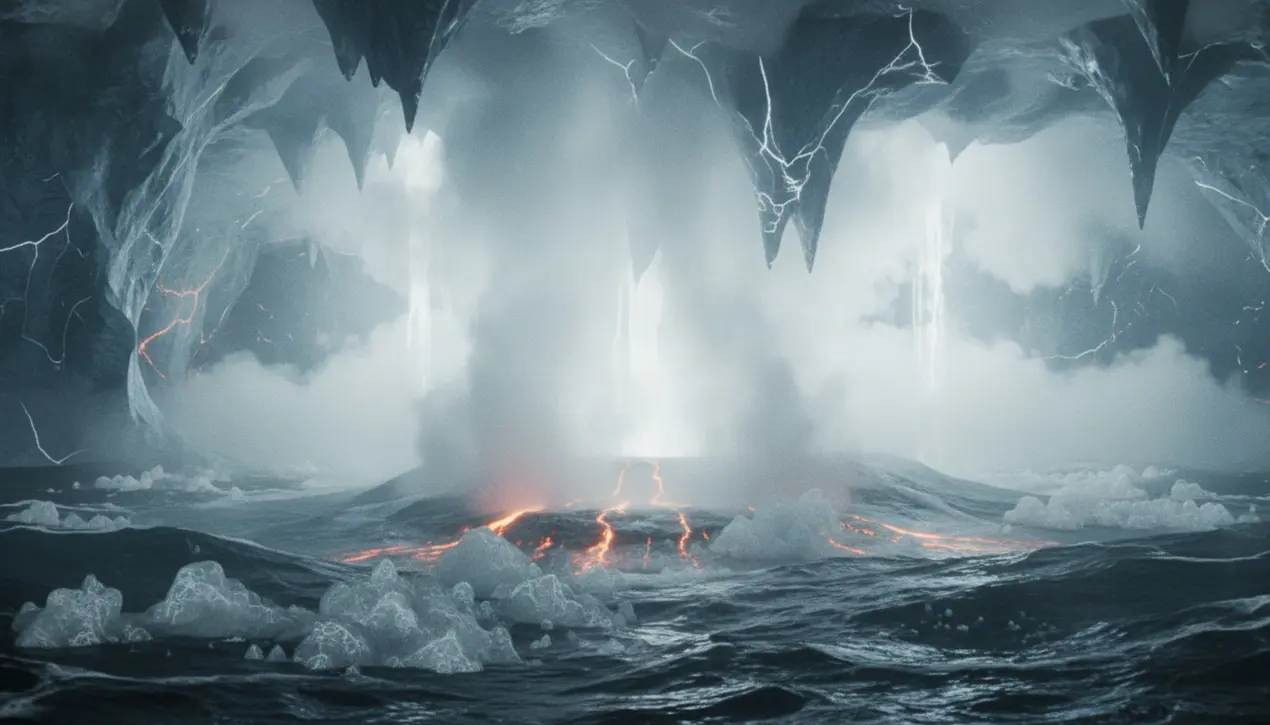
Sciencespace & astronomyExoplanets and Habitable Worlds
Formation of oceans within icy moons could cause the waters to boil.
TH
Thomas Green
8 hours ago7 min read2 comments
The discovery that the formation of oceans within icy moons could cause the waters to boil is a revelation that fundamentally reshapes our understanding of these distant, enigmatic worlds. Picture this: a vast, global ocean, not of placid, Earth-like water, but of a churning, effervescent sea, kept in a perpetual state of simmer by the very forces that gave it life.This isn't science fiction; it's the compelling conclusion drawn from sophisticated modeling that reveals how a rigid, frozen shell over a shrinking, cooling interior creates pressures so astonishingly low that the liquid water within is driven to a boil. The implications are staggering, forcing a complete rethink of what constitutes a 'habitable environment' in our solar system and beyond.For decades, celestial bodies like Jupiter's Europa and Saturn's Enceladus have been the crown jewels in the search for extraterrestrial life, their subsurface oceans tantalizingly shielded from the harshness of space. The conventional wisdom painted a picture of dark, cold, but stable aquatic environments, not unlike the deep-sea vents on Earth that teem with bizarre lifeforms.This new research, however, introduces a dynamic and potentially violent character to these hidden seas. The boiling phenomenon is a direct consequence of planetary aging and cooling.As the rocky core of a moon like Europa contracts over billions of years, it pulls away from the icy crust above. This shell, being strong and rigid, doesn't collapse inward to fill the void.Instead, it holds firm, creating a subterranean chamber where the pressure plummets. In the same way that water boils at a much lower temperature at the top of Mount Everest where atmospheric pressure is low, the water in this subsurface cavity would violently flash into vapor.This isn't a gentle simmer; it's a radical process that would churn the ocean, creating intense hydrothermal activity and complex chemical interactions between the water, the rocky seafloor, and the ice ceiling above. From an astrobiological perspective, this is a double-edged sword.On one hand, such vigorous mixing could be a boon for life, efficiently distributing nutrients and energy sources—potentially from hydrothermal vents on the seafloor—throughout the ocean, creating a rich chemical soup from which life could potentially emerge and thrive. It’s a natural, planet-wide stirring mechanism.On the other hand, the extreme conditions associated with large-scale boiling and the potential for rapid shifts in local chemistry could be too hostile for the delicate processes thought to be necessary for life's origin and sustenance. The energy input is immense, but it might be a destructive, rather than a constructive, force.This discovery also has profound implications for future missions, such as NASA's Europa Clipper. Scientists will now need to recalibrate their instruments and hypotheses to account for a potentially much more dynamic and geologically active ocean than previously assumed.The patterns of heat flow, the composition of any plumes erupting from surface fractures, and the structure of the ice shell itself may all bear the signature of this boiling process. It reframes these moons not as frozen, dormant tombs, but as worlds with intensely active, albeit hidden, geological hearts.This isn't just about water; it's about understanding the full spectrum of planetary evolution and the incredible, often counter-intuitive, ways that physics and chemistry conspire to create environments at the farthest reaches of our cosmic neighborhood. The vision of boiling oceans churning beneath icy surfaces stands as a powerful testament to the fact that the universe is always more inventive, more extreme, and more wondrous than we can possibly imagine.
#featured
#icy moons
#ocean formation
#planetary science
#space exploration
#astrobiology
#water worlds
Stay Informed. Act Smarter.
Get weekly highlights, major headlines, and expert insights — then put your knowledge to work in our live prediction markets.
Related News
Comments
Loading comments...
© 2025 Outpoll Service LTD. All rights reserved.